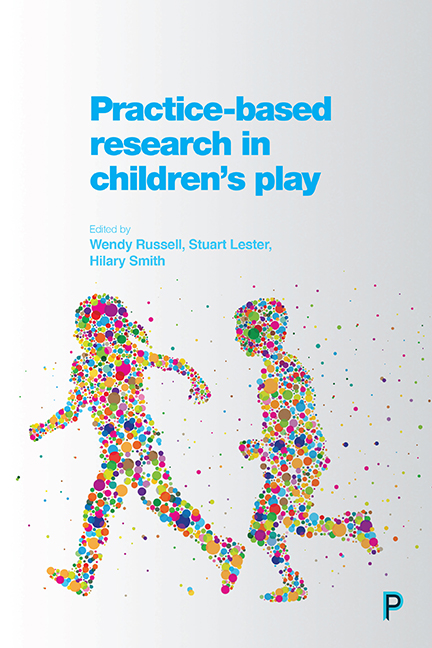Book contents
- Frontmatter
- Contents
- List of figures
- Notes on contributors
- Acknowledgements
- Foreword
- One Perspectives on play research: the practice-theory-research entanglement
- Part One Then and now: historical perspectives
- Part Two Here and there, this and that: spatial and creative perspectives
- Part Three Playfulness and wellbeing
- Closing thoughts
- Appendix: The Playwork Principles
- Index
Three - Debris and delight: children’s play during the second world war
Published online by Cambridge University Press: 05 April 2022
- Frontmatter
- Contents
- List of figures
- Notes on contributors
- Acknowledgements
- Foreword
- One Perspectives on play research: the practice-theory-research entanglement
- Part One Then and now: historical perspectives
- Part Two Here and there, this and that: spatial and creative perspectives
- Part Three Playfulness and wellbeing
- Closing thoughts
- Appendix: The Playwork Principles
- Index
Summary
Introduction
The second world war (WWII) is perhaps the best known time in modern history when children in the UK were subject to large-scale destruction and devastation, while still having periods of free time away from adults to largely do as they pleased (Westall, 1995; Magee, 2008). Yet little is known about children's opportunities and experiences of play during WWII; literature and documentation on children’s experiences of this period is limited. Books, diaries, memoirs, news articles and photography mainly relate to evacuation or childhood in general rather than focusing on the leisure time of children, the opportunities for play during this time (for example, Tymoczko and Blackmun, 2000; Werner, 2001; Andrews-Brown, 2004; Ashman, 2006; Rex, 2008; Veale, 2008). These records of wartime childhood are frequently negative, highlighting experiences of rationing, air raids and evacuation rather than the more positive aspects of childhood, particularly personally directed play experiences.
The small-scale study described in this chapter interweaves the rich oral histories of five people who were children in the East End of London during the war with the literature on children's wartime experiences and also that on play and resilience (Lester and Russell, 2008), Kyttä's (2004) work on affordances and Nicholson's (1971) theory of loose parts, to document and theorise children's opportunities for playing during WWII and how this might inform contemporary playwork practice. The chapter opens with a discussion on childhood during WWII and then moves on to a description of the research process. Four key themes emerged from the data analysis: opportunities for playing; affordances; loose parts, toys and games; resilience and risk. Each theme is introduced through the literature and illustrated from the participants’ stories.
As Thompson (2000, p 1) states: ‘All history depends ultimately upon its social purpose.’ The purpose of the history told here grew out of the coming together of a number of interests: the researcher's involvement in playwork; her observations of and curiosity about children's creation/ use of spaces for playing; and an interest in exploring how the play experiences of children during WWII may offer insights for making sense of the Playwork Principles (PPSG, 2005) in practice, particularly in terms of supporting children in the creation of a space where they can play on their terms with fewer adult-imposed expectations and demands.
- Type
- Chapter
- Information
- Practice-Based Research in Children's Play , pp. 35 - 52Publisher: Bristol University PressPrint publication year: 2017



